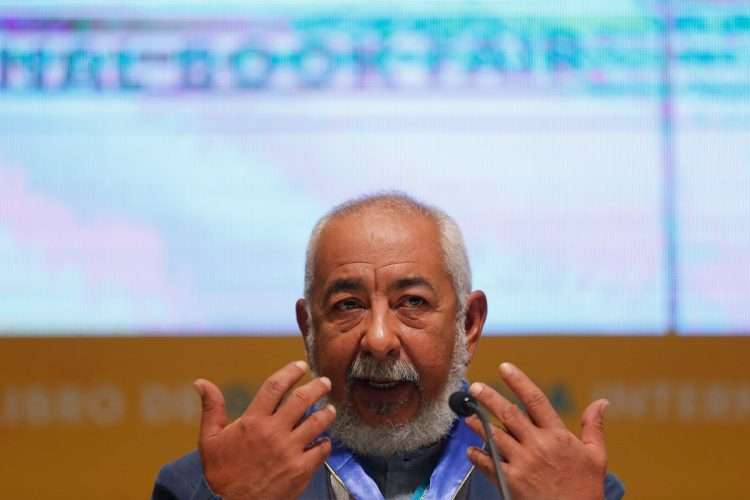Exile is one of the great dramas of a generation of Cubans that grew up after 1959, said the Havana writer Leonardo Padura this Sunday in his participation in the Guadalajara International Book Fair.
“There are political, economic, family reasons…all the possibilities to justify the decision to stay or leave Cuba, but it has been one of the great dramas of my generation, it is a drama that unfortunately continues to unfold in Cuba,” he said in a talk.
Padura (Havana, 1955) is one of the main figures of the 35th edition of the FIL, considered the most important Spanish-speaking literary events, where he held a dialogue with his readers about his new novel Como polvo en el viento in which he portrays the story of a group of friends divided by exile.
The writer pointed out that his generation is the first that had access to a university education, but also the one that was marked by a polarization about the then recently established Fidel Castro regime. Some of them decided to leave the country due to their dissatisfaction with the way of life imposed by the regime, others stayed in the country despite their precariousness and difficulties to survive.
“All the reasons for leaving Cuba are valid and all the reasons for staying are also valid,” according to one of his characters.
The generation that Padura had reflected in some of his novels is now the protagonist of his new book, a choral story in which the plot revolves around the positions held by a group of friends called “El Clan” to which chance leads them to different parts of the world.
“I knew that there was a space in that reflection that I was missing and that was to see it from other shores, from different shores, it is not a novel in which I make an analysis of what the diaspora has meant in Cuba unlike El hombre que amaba los perros in which there is a more thoughtful and researched look regarding this,” he pointed out.
It is “a more visceral than rational novel,” as Padura defined this work, since the stories “came from within,” of what he lived over decades listening, watching and living with friends and family who decided to stay but also those who decided to go to places as common as Miami, the United States or Europe.
For the author of the crime novel saga starring detective Mario Conde, the Cuban diaspora “has not stopped” because those who have the opportunity to educate themselves “find a roof” in the country that forces them to go out in search of a better life.
The writer assured that there is no way to be Cuban even for those who decided to stay in the country, as there are many positions regarding the reality that exists there.
“Exile is not experienced in the same way in a city like Miami or in Tacoma, the United States or Madrid or Barcelona, the most attractive part of the preparation of this novel is that research, many of these stories I knew from having had them close by, this anguish of exile and of the different ways of behaving,” he said.
Padura received the Carlos Fuentes Medal from the author’s widow, Silvia Lemus, an award that had to be postponed last year, because the FIL was carried out virtually due to the sanitary restrictions imposed by the COVID-19 pandemic. He dedicated the medal to the memory of Spanish writer Almudena Grandes who died this Saturday, who he said was a great person and a great friend.
FIL is being held from November 27 to December 5 with the attendance of 600 writers from 46 countries, with the participation of more than 3,000 professionals and 255 exhibitors from 27 countries with an editorial offer of 240,000 titles in 10,000 square meters of exhibition.
Mariana González-Márquez/EFE/OnCuba











Hi to every , because I am truly eager of reading this web site’s
post to be updated regularly. It contains nice stuff.